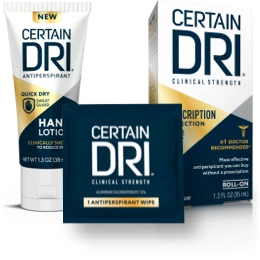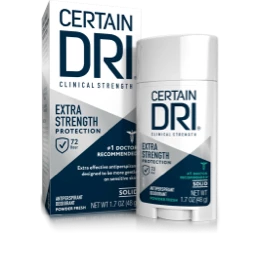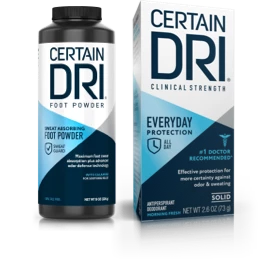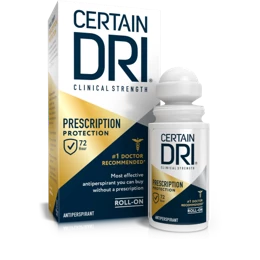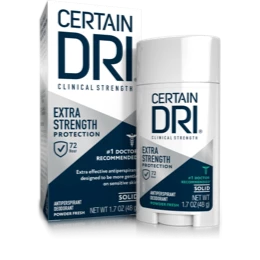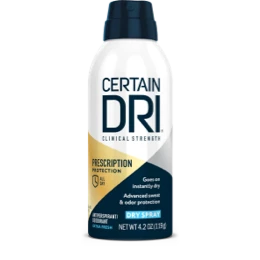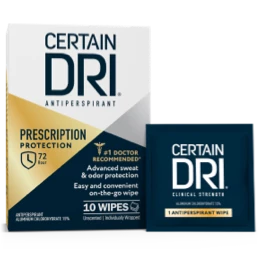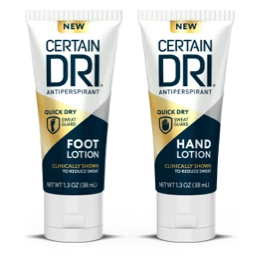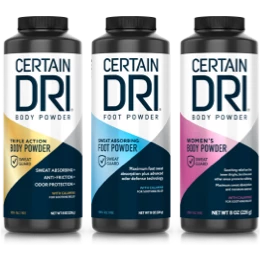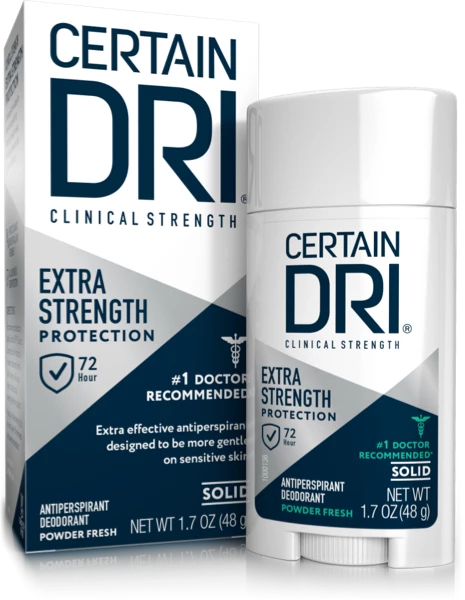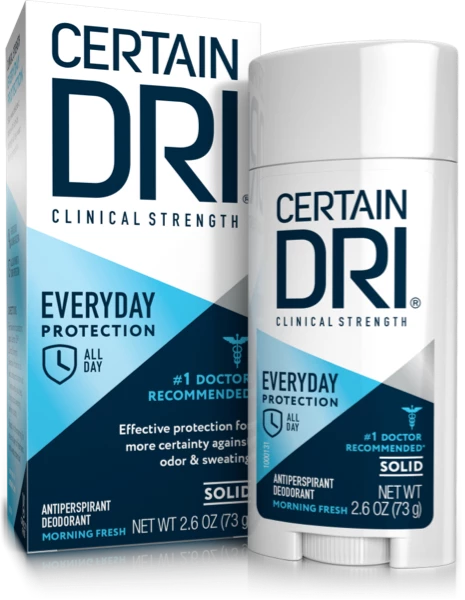Deodorant vs Antiperspirant
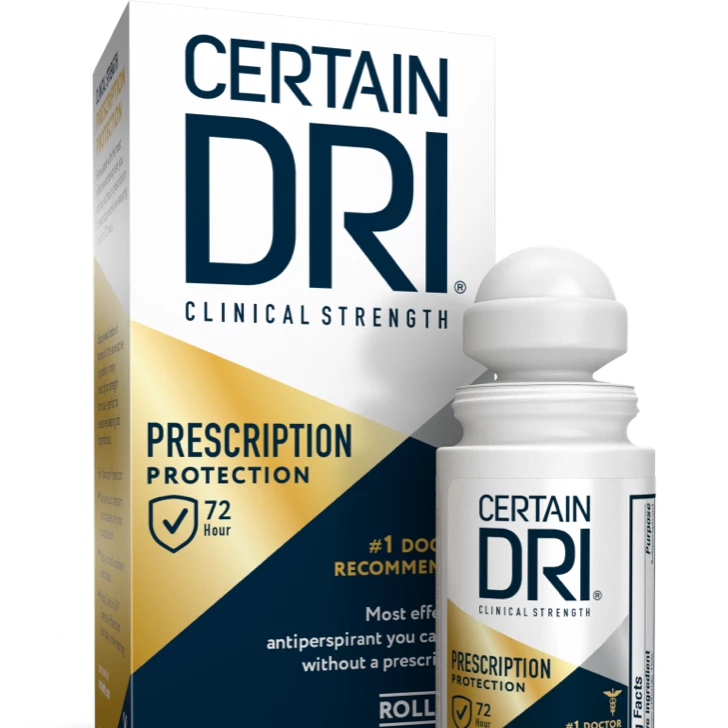
What's the difference between deodorant and antiperspirant?
Though their names are often used interchangeably, deodorants and antiperspirants play very different roles in combating body odor and reducing sweat. A common myth is that sweat is responsible for body odor. Underarm body odor is caused by a combination of fat and protein in your sweat mixing with bacteria on your skin. Deodorant contains antibacterial agents which help to reduce the odor the bacteria produces. Meanwhile, antiperspirants contain aluminum salts which temporarily plug the pores, subsequently reducing sweat.
5 details about antiperspirants and deodorants
- Deodorants are designed to mask odor, not block sweat.
- Antiperspirants are designed to prevent sweat by clogging the pores, not necessarily to stop odor. Don’t be alarmed – nature simply and safely redistributes the perspiration to other surfaces of the skin.
- For best practices in managing both excessive sweating and odor, use a combination of antiperspirant and deodorant.
- Neither antiperspirants nor deodorants have been proven to be linked to cancer.
- So-called sweat stains may actually be caused by antiperspirants or deodorants when they are applied improperly, rather than by actual sweat. After application, wait for the product to absorb into the skin and dry.
Tipsfor best
results
Antiperspirants work best while you sleep to stop sweat the next day. You sweat less at night, allowing the antiperspirant to absorb into your pores for sweat protection the next day.
-
Apply at night to completely dry, non-irritated underarms.
-
Can be reapplied in the morning for an extra layer of freshness and protection
Stop sweat before it starts
Certain Dri offers several treatment options each formulated to provide clinical strength sweat protection to stop sweat before it starts.
Find the Certain Dri product that’s right for you:
Shop All Antiperspirants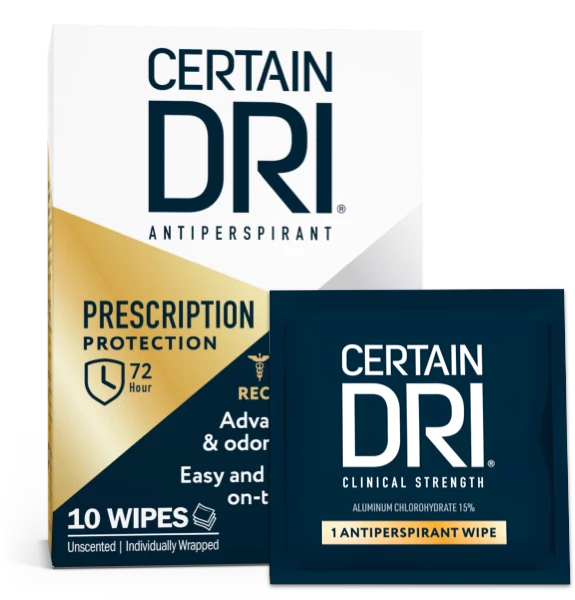
Prescription Strength
Wipes
Goes on invisible with no white residue or stickiness
Learn More
150+ Ratings
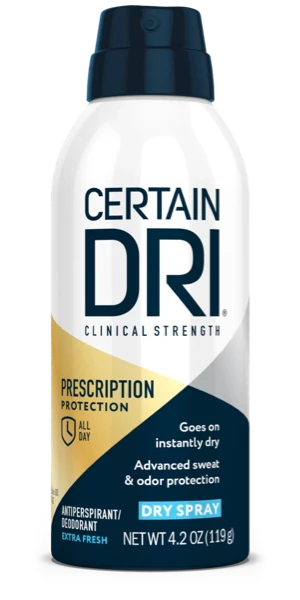
Prescription Strength
Dry Sprays
Goes on instantly dry, available in two fresh scents
Learn More
3k+ Ratings
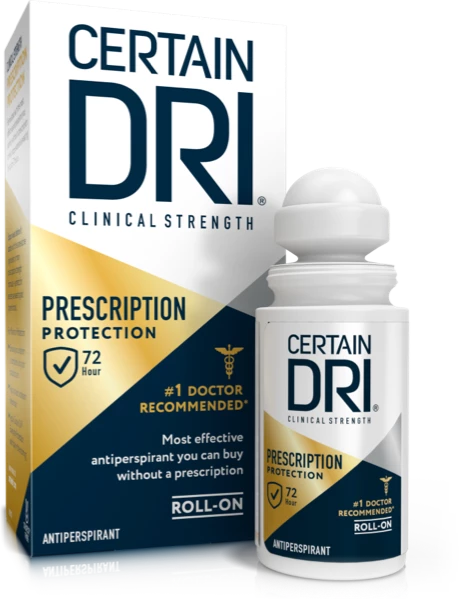
Prescription Strength
Roll-On
Formulated with the most effective ingredient you can buy without a prescription
Learn More
37.7k+ Ratings
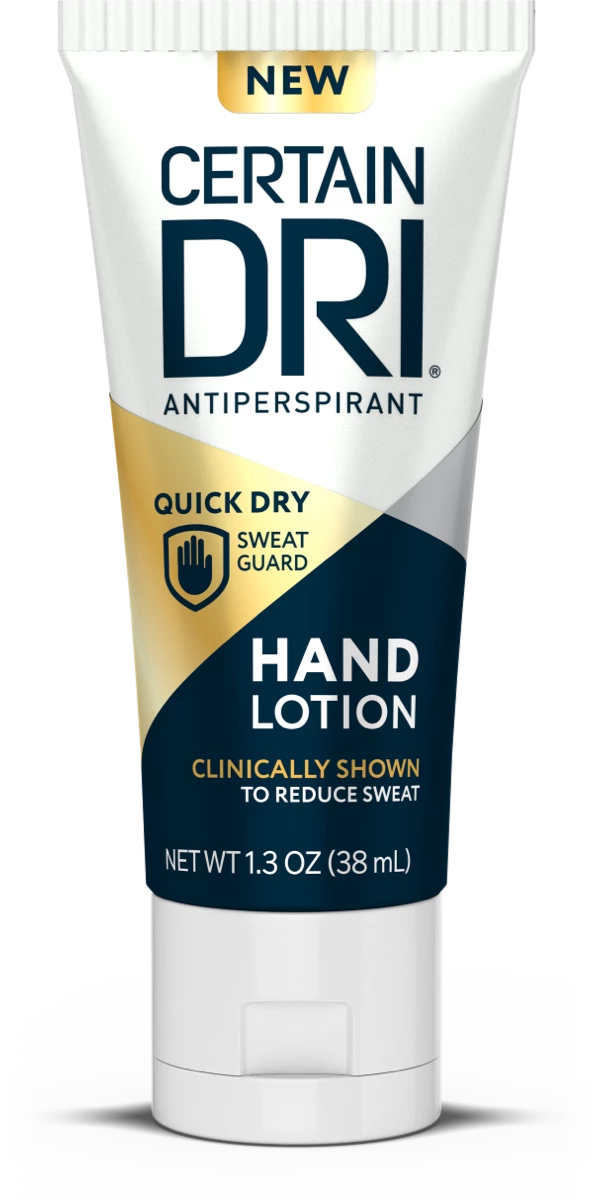
Prescription Strength
Hand Lotion
All day Hand sweat protection in a high-quality lotion
NEW
Learn More
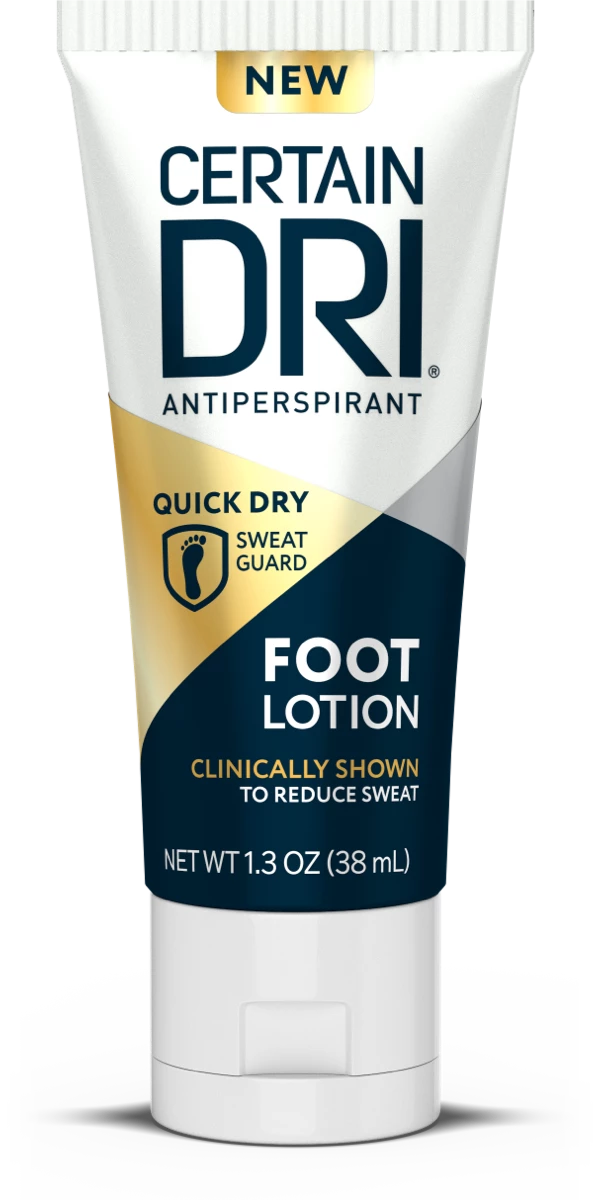
Prescription Strength
Foot Lotion
Fast drying Foot sweat protection that lasts all day
NEW
Learn More

